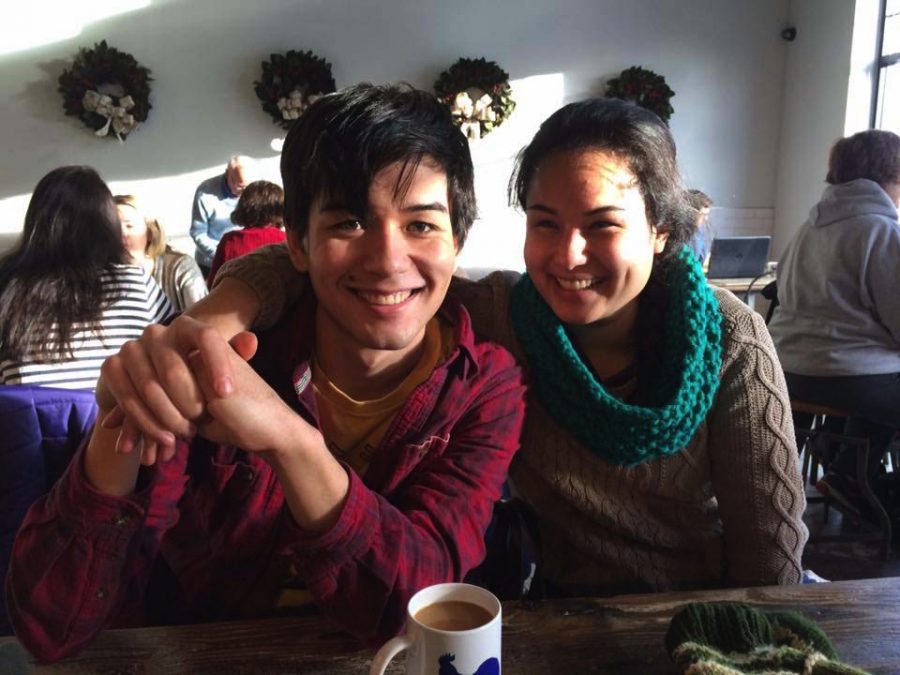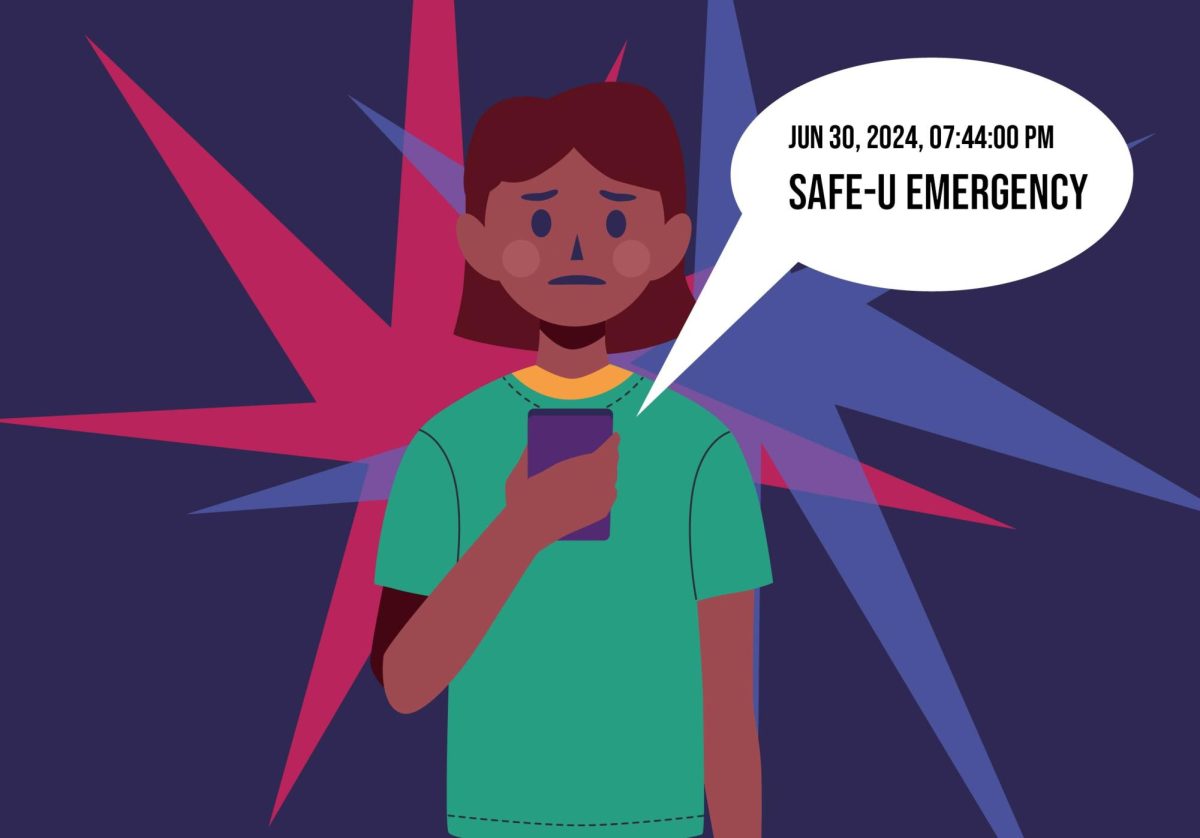When Hana Maruyama was in high school, her mother encouraged her to do school projects surrounding the family’s history. Now as a University of Minnesota Ph.D. candidate, Maruyama and her brother, Noah Maruyama, are collecting and preserving the stories of Japanese Americans forcibly incarcerated during World War II.
The podcast “Campu” spotlights objects such as rocks, fences, food and paper — objects commonly found in jails and prisons — to add intimate details of life inside the concentration camps. The name refers to the term “campu no kuse,” which describes the custom of “incarcerees” collecting objects in the camps.
“Campu” incorporates firsthand oral histories from the camps with the help of Densho, a Seattle-based nonprofit that aims to preserve and share the history of the incarceration of Japanese Americans during World War II.
“So many have reached out to say, ‘This [podcast] was incredibly healing for me, and it felt like it was my family history, even if you weren’t actually talking to my family members,’” Hana said. “I think that feedback has been just incredible and exactly what we set out to do in the very beginning.”
Since its launch in September, the Los Angeles Review of Books podcast review channel named “Campu” a top-five podcast to listen to in January, and the New York Times listed it as a top-eight new podcast.
Tom Ikeda, Densho’s founder and director, had two generations of family members incarcerated during the war. In the 1990s, Ikeda realized that many Issei and Nisei — first-generation and second-generation Japanese immigrants, respectively — incarcerees had died, motivating him to record their stories before they were lost forever.
“[Ikeda] knew that making these oral histories, recording them like videos and then making them available online for free, was going to be more powerful and long-lasting than trying to establish a traditional museum or just [creating] audio files,” said Natasha Varner, the communications and public engagement director at Densho.
Hana and Noah made these oral histories the cornerstone of the listening experience in “Campu,” alongside Hana’s narration and Noah’s audio engineering and musical scores.
Each podcast episode ends with Hana or Noah reading each narrator’s name who shared their oral history archive in the episode. Many of the narrators are no longer alive. For the former incarcerees who are still living, the podcast is a platform to discover the stories they suppressed for decades.
“People have said that they hear familiar voices in the credits where we list 60 or so names in a row, and they will recognize someone that they knew 40 or 50 years ago,” Noah said. “The variety of voices of the incarcerees is really what is special about this podcast, and that would not have been possible without Densho.”
Silence on the subject has meant that a younger generation of Japanese Americans has grown up with a clouded knowledge of their family’s history and pain, Hana said.
Growing up in Washington D.C., the siblings said they had family members who were forcibly incarcerated in the camps but rarely spoke about their experiences.
Before the podcast, Noah said he only knew the surface of the history of Japanese American incarceration. He grew up not having Japanese American friends and feeling disconnected from a part of his identity, he said.
“For Japanese Americans, speaking together is healing. That silence often hurts us, and wounds fester when you don’t treat them,” Noah said. “This really was a period of personal growth for me in working on this. I think reckoning with that is what made it so.”
A story of injustice
The first episode provides context for where many of the camps were — land that belonged to Native Americans and, during westward expansion, was often cultivated by enslaved Africans.
“I want us to understand how this relates to greater systems of oppression in this country,” Hana said. “That first episode, we try and talk about how this country was built on the dispossession of American Indians and the enslavement of Black people. And I think understanding that as the foundation that enabled what happened to Japanese Americans is important.”
The incarceration of Japanese Americans in the U.S. began in February 1942 after President Franklin Delano Roosevelt signed Executive Order 9066, clearing the way for the incarceration of Japanese Americans.
Some historians regard Roosevelt as one of the top presidents in U.S. history, often credited with bringing the country out of the Great Depression. However, many Japanese Americans have different memories of the nation’s longest-serving president.
“It’s very apparent that anytime you bring [Roosevelt] up with a Japanese American, it’s very negative. That goes for my dad, my grandmother and pretty much anyone I can think of,” Noah said. “Japanese Americans often understate quite a bit, laugh off or stay silent about the things they are angry about. That is not there for FDR.”
In response to intelligence about a possible attack on Pearl Harbor, Roosevelt commissioned a report investigating Japanese Americans’ loyalty in the Western United States. The report largely concluded that Japanese Americans were loyal and would pose little threat to the U.S.
Despite results from the report, Roosevelt signed the order in a decision that J. Edgar Hoover, the director of the FBI at the time, said was based on “public and political pressure rather than on factual data.”
Throughout the podcast, Hana and Noah refrain from using the term “internment camps.” According to Hana, the term refers to the detention of “enemy aliens,” which does not apply to the American citizens that made up two-thirds of the incarcerees.
Instead, Hana and Noah use the term “concentration camps.”
“The term concentration camp is really the most fitting, historically accurate term that exists for what happened to Japanese Americans, and that is why we do use that term in the podcast,” Hana said.
During history classes, Hana said she rarely heard this side of Roosevelt’s legacy. She often grappled with the question of whether a “good” president could put people in concentration camps and still be revered.
Looking to the future
Hana and Noah are in talks with Densho to create additional material for “Campu.” They both want to continue the project after Hana completes her dissertation at the University.
The siblings’ focus is currently on a special episode that will honor their grandmother, whom they lost to COVID-19 in late December.
Hana was in the process of writing the current season’s final episode when their grandmother died. The only way to finish the material was to write about her, she said.
But Hana said she also has to consider her grandmother’s honest feelings on sharing stories about the incarceration.
“I had this moment when she passed away where I asked myself, ‘Should I really be doing this work? [My grandmother] hated talking about it, so is this work actually honoring her legacy, or is it just bringing back something she would have wanted to forget?’ That is not a question that most researchers have to ask themselves,” Hana said.
The resilience of the incarcerees and understanding how their story fits into broader narratives of American oppression is what drives them to keep sharing this history, Hana and Noah said.
“Injustices get worse when we don’t pay attention to them,” Noah said.



























